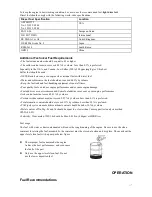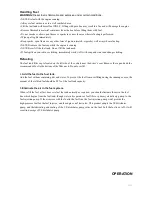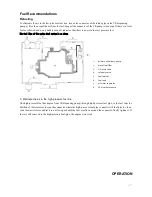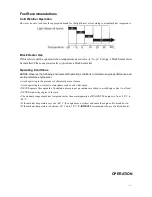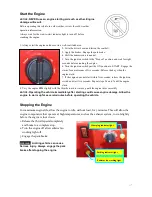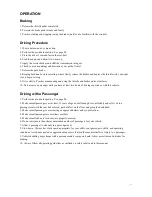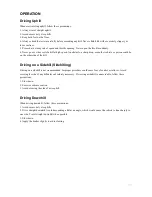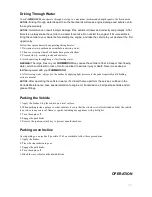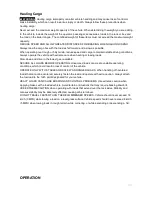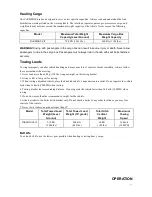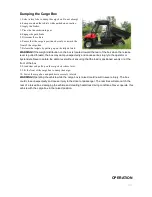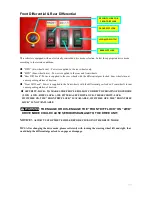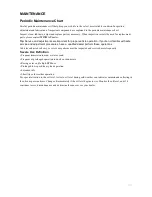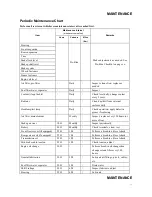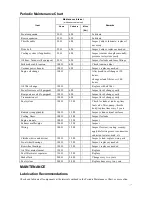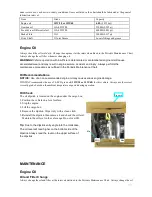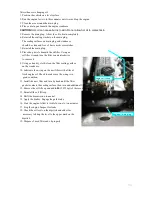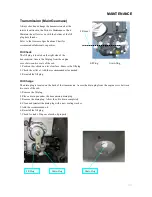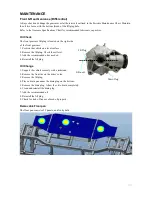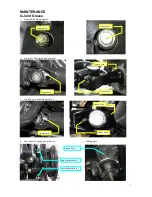
OPERATION
Braking
1. Release the throttle pedal completely.
2. Press on the brake pedal evenly and firmly.
3. Practice starting and stopping (using the brakes) until you're familiar with the controls.
Driving Procedure
1. Wear a helmet and eye protection.
2. Perform the pre-ride inspection. See page 24.
3. Sit in the driver's seat and fasten the seat belt.
4. Start the engine and allow it to warm up.
5. Apply the service brakes and shift the transmission into gear.
6. Check your surroundings and determine your path of travel.
7. Release the park brake.
8. Keeping both hands on the steering wheel, slowly release the brakes and depress the throttle with your right
foot to begin driving.
9. Drive slowly. Practice maneuvering and using the throttle and brakes on level surfaces.
10. Do not carry a passenger until you have at least two hours of driving experience with this vehicle.
Driving with a Passenger
1. Perform the pre-ride inspection. See page 24.
2. Make sure all passengers are at least 12 years of age and tall enough to comfortably and safely sit in a
passenger seat with the seat belt secured, put both feet on the floor and grasp the hand hold.
3. Make sure all passengers are wearing an approved helmet and eye protection.
4. Make sure all passengers secure their seat belt.
5. Make sure all cab nets (or doors) are properly secured.
6. Do not carry more than the recommended number of passengers for your vehicle.
7. Allow a passenger to ride only in a passenger seat.
8. Slow down. Always travel at a speed appropriate for your skills, your passengers’ skills, and operating
conditions. Avoid unexpected or aggressive maneuvers that could cause discomfort or injury to a passenger.
9. Vehicle handling may change with a passenger and/or cargo on board. Allow more time and distance for
braking.
10. Always follow all operating guidelines as outlined on safety labels and in this manual.










